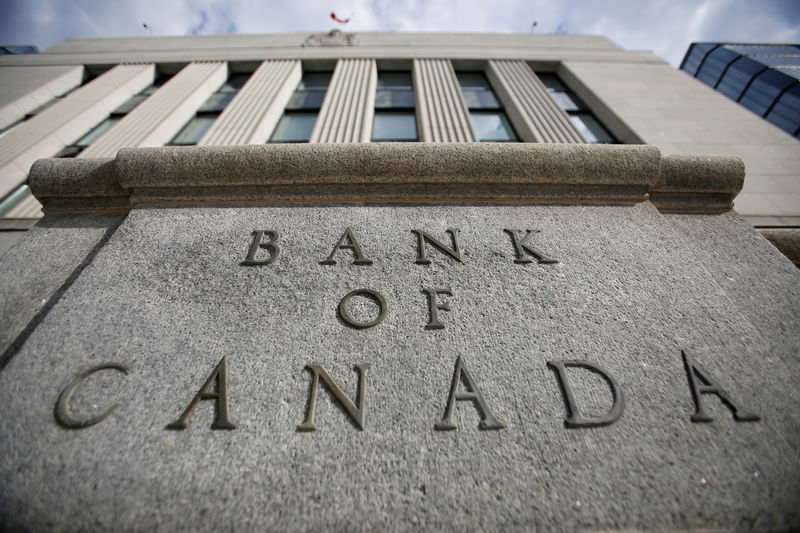By Fergal Smith
TORONTO (Reuters) - Inversion of Canada's yield curve by the most in nearly two decades is threatening to coerce the Bank of Canada to cut interest rates rather than risk an economic downturn, portfolio managers said on Wednesday.
Curve inversion, when long-term yields dip below short-term ones, is seen by some investors as a harbinger of economic recession. It could also be a source of damage for the economy, reducing the incentive for banks to lend and the motivation for investors to take on the long-term projects that tend to boost growth.
"The Bank of Canada can't ignore what's happening in debt markets and the inversion of the yield curve," said Sal Guatieri, a senior economist at BMO Capital Markets. "It's so highly inverted now, a reduction in policy rates would at least provide some semblance of normality."
The inversion of Canada's yield curve came as the yield on the U.S. 10-year Treasury note tipped 2.1 basis points below 2-year Treasury yields US2YT=RR on Wednesday, spooking global markets.
The Bank of Canada left overnight borrowing costs on hold at 1.75% in July and said it was comfortable with that stance given the domestic economy's recovery from a series of challenges.
The Bank of Canada's position has put it at odds with many of the global central banks.
But Canadian long-term rates, which are linked to moves in the global bond market, have since fallen further below short-term rates. On Wednesday, the 10-year yield traded at about 20 basis points below the 2-year yield, its deepest inversion since May 2000.
TRADE TENSIONS
The last two inversions of 2- and 10-year rates, in 2000 and 2007, preceded sharp easing cycles.
(GRAPHIC - Canada's yield curve: https://tmsnrt.rs/2N5KQt5)
"I think the BoC will be watching this nervously," said James Athey, a senior investment manager at Aberdeen Standard Investments in London. "It's very much a global phenomenon but the signs coming from markets, including inversion, are concerning."
Investors across the world are worried that trade conflicts could hurt the outlook for the world economy. Canada runs a current account deficit and exports many commodities, including oil, so its economy could be hurt by a slowdown in the global flow of trade or capital.
"I think a global recession scenario is a strong possibility, and if so, it will be very difficult for Canada to escape a similar fate," said Hosen Marjaee, a senior portfolio manager, at Manulife Asset Management. "The BoC may have to start thinking about a cut sooner than later to mitigate the outcome."
A potential Bank of Canada rate cut could hurt the Canadian dollar, one of the top performing G10 currencies this year.
Money markets see about a 25% chance that the central bank will ease at its next interest rate decision on Sept. 4, up from 10% last month. By December, a rate cut is almost fully priced into the market.

"The market is trying to bully" the Federal Reserve and other central banks," Athey said. "The market will win," he added.